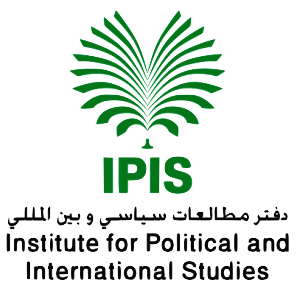
University of Tehran is the oldest modern university located in Tehran, Iran. It is also one of the most prestigious universities in the Middle East. Based on its historical, socio-cultural, and political pedigree, as well as its research and teaching profile, UT has been nicknamed "The mother university of Iran". It has been ranked as one of the best universities in the Middle East in national and international rankings and among the top universities in the world. It is also the premier knowledge producing institute among all OIC countries. The university offers 111 bachelor's degree programs, 177 master's degree programs, and 156 Ph.D. programs. Many of the departments were absorbed into the University of Tehran from the Dar al-Funun established in 1851 and the Tehran School of Political Sciences established in 1899.

Sharif University of Technology is a public research university in Tehran, Iran and is widely considered to be the nation's leading institution for engineering and physical science disciplines, as it is known to be the 'Iranian MIT'. The international campus of the university is located in Kish Island, Persian Gulf.

The Jerusalem Center for Public Affairs (JCPA) is an Israeli research institute specializing in public diplomacy and foreign policy founded in 1976. Currently, the Jerusalem Center for Public Affairs's research portfolio consists of five primary initiatives: the Institute for Contemporary Affairs (ICA), Defensible Borders Initiative, Jerusalem in International Diplomacy, Iran and the New Threats to the West, and Combating Delegitimization. More broadly, the think-tank concentrates on the topics of Iran, Radical Islam, the Middle East, Israel, the Peace Process, Jerusalem, Anti-Semitism, and World Jewry.

Alzahra University is a female-only state-run university in Vanak, Tehran, Tehran Province, Iran. Alzahra University is the only comprehensive women’s university in Iran and the Middle East and one of the best universities in Iran. Acceptance to the university is competitive and entrance to undergraduate and graduate programs requires scoring among the top 1% of students in the Nationwide University Entrance Exams, known as "کنکور سراسری". Alzahra University is ranked second in IRAN and 201-300 in the world, according to University Impact Rankings 2019, Times Higher Education (THE). Alzahra University ranked #17 in IRAN and #801+ worldwide according to the physical sciences subject ranking, World University Rankings 2019 by Times Higher Education.

Abdolkarim Soroush (عبدالكريم سروش Persian pronunciation: [æbdolkæriːm soruːʃ]; born Hossein Haj Faraj Dabbagh, is an Iranian Islamic thinker, reformer, Rumi scholar, public intellectual, and a former professor of philosophy at the University of Tehran and Imam Khomeini International University He is arguably the most influential figure in the religious intellectual movement of Iran. Soroush is currently a visiting scholar at the University of Maryland in College Park, MD. He was also affiliated with other prestigious institutions, including Harvard, Princeton, Yale, Columbia, the Leiden-based International Institute as a visiting professor for the Study of Islam in the Modern World and the Wissenschaftskolleg in Berlin. He was named by TIME as one of the world’s 100 most influential people in 2005, and by Prospect magazine as one of the most influential intellectuals in the world in 2008. Soroush's ideas, founded on Relativism, prompted both supporters and critics to compare his role in reforming Islam to that of Martin Luther in reforming Christianity.

The Iran Research Institute of Philosophy (IRIP) is a Public research institute in Tehran, Iran.
The Washington Institute for Near East Policy (WINEP) is an American think tank based in Washington, D.C., focused on the foreign policy of the United States as it pertains to the countries in the Near East. Established in 1985, the institute's mission statement says that it seeks "to advance a balanced and realistic understanding of American interests in the Middle East and to promote the policies that secure them."

Tehran University of Medical Sciences (TUMS) is the largest, "most distinguished", and most highly-ranked medical university of Iran. In September 2008, Iran's Minister of Health, Treatment, and Medical Education, Dr. Lankarani, called TUMS a pioneer in research throughout the country with a noticeable lead over its peer universities.

Khajeh Nasir Toosi University of Technology (KNTU), also known as K. N. Toosi University of Technology, is a public university in Tehran, Iran, named after medieval Persian scholar Khajeh Nasir Toosi. The university is considered one of the most prestigious, government-sponsored institutions of higher education in Iran. Acceptance to the university is highly competitive and entrance to all undergraduate and graduate programs requires scoring among the top 1% of students in the Nationwide University Entrance Exams, known as "کنکور سراسری".
Mahmood Sariolghalam is a professor of International Relations at the School of Economics and Political Science in Shahid Beheshti University since 1987. He was born in Tehran, Iran in 1959. He received his B.A. degree in Political Science/Management from California State University, Northridge in 1980 and his M.A. and Ph.D. degrees in International Relations from the University of Southern California in 1982 and 87, respectively. Sariolghalam also completed a Post Doctorate program at the Ohio University in 1997. During the 2009-2010 academic year, he taught at the Kuwait University.

The Institute for Political and International Studies (IPIS) is a foreign policy think tank based in Tehran, Iran and affiliated to Iran's Ministry of Foreign Affairs. It was founded in 1983 as one of the first think tanks in Iran after the 1979 Iranian Revolution with the task of leading and encouraging the study and research on issues relevant to the foreign policy of the Islamic Republic of Iran.
The Research Center of Islamic legislative Assembly is the research arm of the Iranian parliament (Majlis). This center works primarily and directly for Members of Iranian Parliament, their Committees and staff on a confidential, nonpartisan basis.
Vladimir Fedorovich Minorsky was a Russian Orientalist best known for his contributions to the study of Persian and Kurdish history, geography, literature, and culture.
Marina Nemat is the author of two memoirs about her life growing up in Iran, serving time in Evin Prison for speaking out against the Iranian government, escaping a death sentence and finally fleeing Iran for a new life in Canada.

Iranian Research Institute for Information Science and Technology (IRANDOC) is an Iranian research center with a national mission to meet the country's needs in the field of information science and technology.

Kharazmi University is a major institution of higher education in Iran, named after Khwarizmi (780-850c), Persian mathematician, astronomer and geographer, offering a wide range of undergraduate and postgraduate programs in a variety of disciplines. Kharazmi University is considered as the oldest institution of higher education in Iran. It was established in 1919 as the Central Teachers' Institute and gained university status as Tarbiat Moallem University of Tehran in 1974. It changed its name to Kharazmi University on January 31, 2012. In 2015, the University of Economic Science was merged into Kharazmi University as its faculty of management, faculty of financial sciences and faculty of economics. The university has two main campuses, the main campus including administration offices located in Tehran, another is in the Hesarak district of Karaj.

Dr. Faramarz Tamanna is the Director General of the Center for Strategic Studies of the Ministry of Foreign Affairs (Afghanistan) and meanwhile, chancellor of University of Afghanistan in Kabul . He holds his PhD from Jawaharlal Nehru University in International Studies and also from Tehran University in International Relations. Dr. Tamanna has previously worked as Deputy Spokesperson of the Ministry of Foreign Affairs and has held other positions in Afghan diplomatic missions abroad. He, also, has taught in several universities. He is the author of two books and tens of articles covering security and international relations.
Mirjam Künkler, teaches Middle Eastern Politics at Princeton University. Kuenkler's expertise is in Iranian and Indonesian politics.
The Institute for Iran-Eurasia Studies, commonly known as IRAS, founded in 2004, is an independent, non-profit, non-governmental think tank and publisher based in Tehran.

Mehdi Sanaei is a university professor, independent politician and the incumbent ambassador extraordinary and plenipotentiary of the Islamic Republic of Iran to the Russian Federation. As senior international relations scholar and well-known political author, he is the founder of Russian Studies Department in the Faculty of World Studies, University of Tehran and has taught various courses on Eurasia affairs since 2005. Earlier, he was visiting lecturer in political science at Russian State University for the Humanities (RSUH). He has been a member of Russian Academy of Sciences (RAS) since May 2014 and member of Kazakhstan Academy of Social Sciences since 1997.















